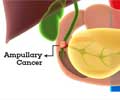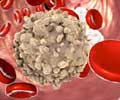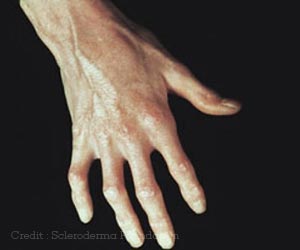An experimental mRNA cancer vaccine shows promising results in a Phase 1 trial, potentially offering new hope for advanced-stage cancer patients.

Experimental mRNA cancer vaccine shows potential
Go to source). Nineteen patients with advanced-stage diseases participated in the study and received multiple doses of mRNA-4359. The immunotherapy effectively stimulated the immune system to target and combat cancer cells. While some patients experienced mild side effects like fatigue, injection site discomfort, and fever, the treatment was generally well-tolerated.
‘mRNA-4359 could be a valuable addition to the treatment options for patients with advanced #cancers. #cancertreatment #mRNA #immunotherapy ’





Moderna's mRNA Cancer Immunotherapy Shows Promise
Results from the Phase I trial, also the first-in-human study of the therapy, are being presented on Saturday, 14th September at the European Society of Medical Oncology conference in Barcelona by the UK Chief Investigator of the trial from King’s College London and Guy’s and St Thomas’ NHS Foundation Trust. The trial is sponsored by Moderna.The mRNA immunotherapy is just one of many cancer vaccines entering clinical trials around the world. The therapy works by presenting common markers of tumours to patients’ immune systems, training them to recognise and fight cancer cells that express them and potentially eliminate cells that could supress the immune system.
The Phase I trial was designed to test the safety and tolerability of the immunotherapy, and secondary and tertiary objectives were to assess the radiographic and immunological responses.
Eight out of sixteen patients who could have their responses evaluated were able to demonstrate their tumour size did not grow and no new tumours appeared.
Data also showed the mRNA immunotherapy could activate the immune system in many patients, generating immune cells in the blood that could recognise the two proteins of interest (PD-L1 and IDO1). Researchers were able to show in some patients that the immunotherapy can increase levels of important immune cells that can kill cancer cells as well as reduced levels of other immune cells that can prevent the immune system from fighting cancer.
Advertisement
The trial continues to recruit patients with melanoma and lung cancer in combination with the immunotherapy drug pembrolizumab to provide more information on the safety and efficacy of the therapy.
“We have shown that the therapy is well tolerated without serious side effects and can stimulate the body’s immune system in a way that could help to treat cancer more effectively. However, as this study has only involved a small number of patients to date, it’s too early to say how effective this could be for people with advanced stage cancer."
“The trial continues to recruit patients with melanoma and lung cancers and is a huge international effort across the UK, USA, Spain and Australia.”
Kyle Holen, M.D., Moderna's Senior Vice President and Head of Development, Therapeutics and Oncology, said: "We are encouraged by the Phase 1 results of mRNA-4359, which demonstrate its potential to elicit strong antigen-specific T-cell responses while maintaining a manageable safety profile."
“This novel approach could be a key component in shifting the tumour microenvironment toward a more immune-permissive state, offering potential hope for patients with advanced solid tumours."
Reference:
- Experimental mRNA cancer vaccine shows potential - (https://www.kcl.ac.uk/news/mrna-cancer-vaccine-potential-advanced-stage-cancer-patients-in-phase-1-trial)
Source-Eurekalert















